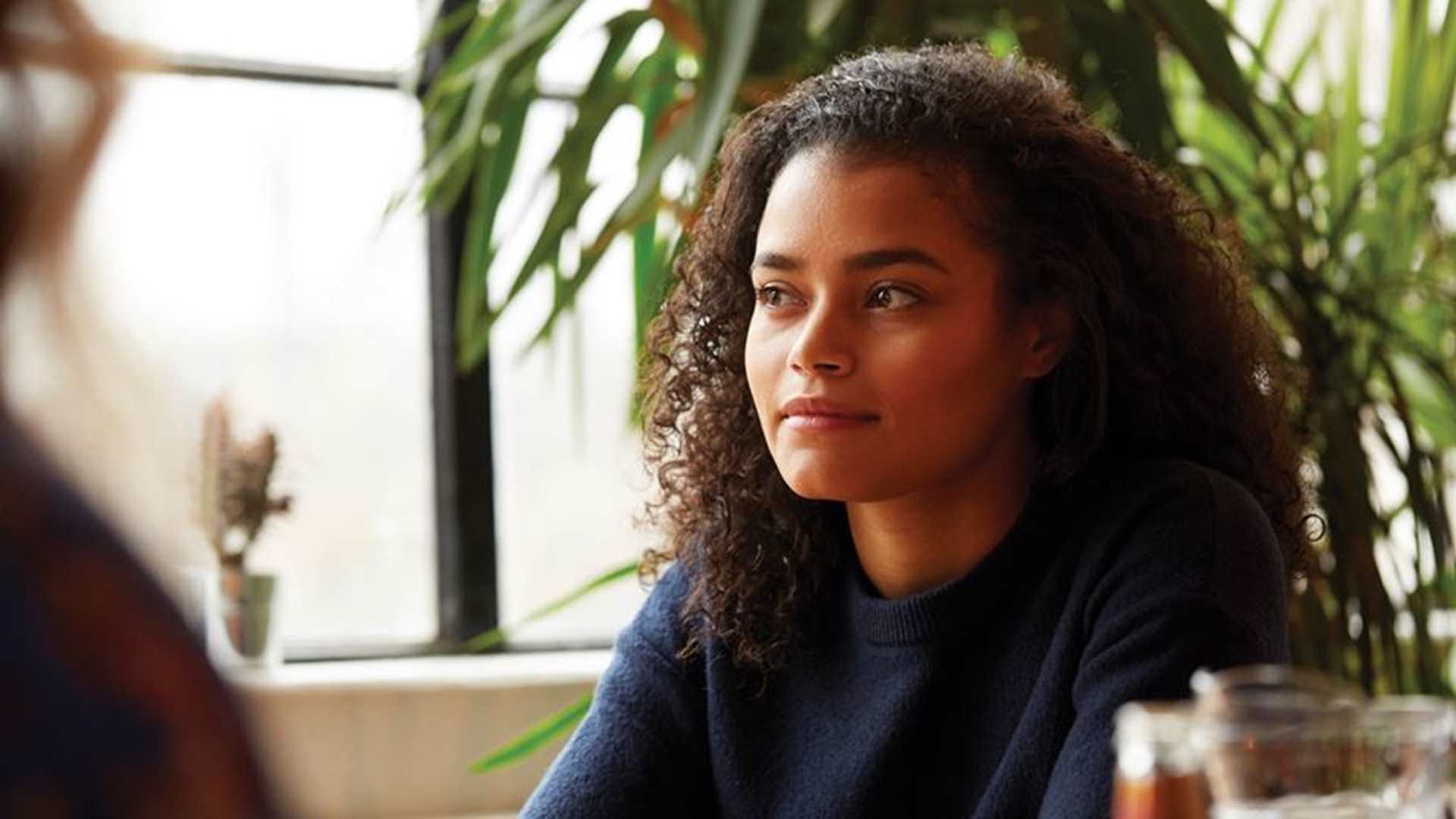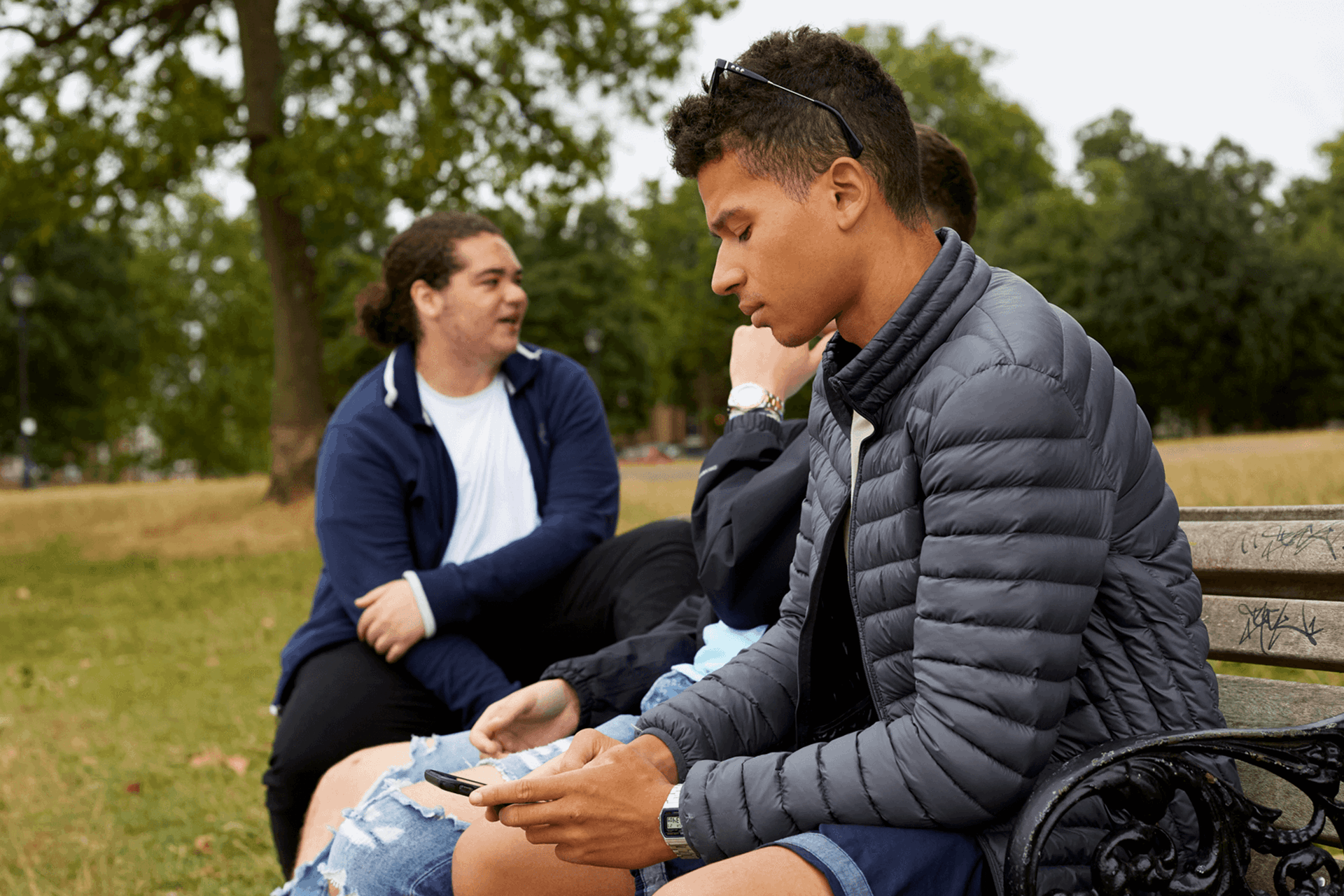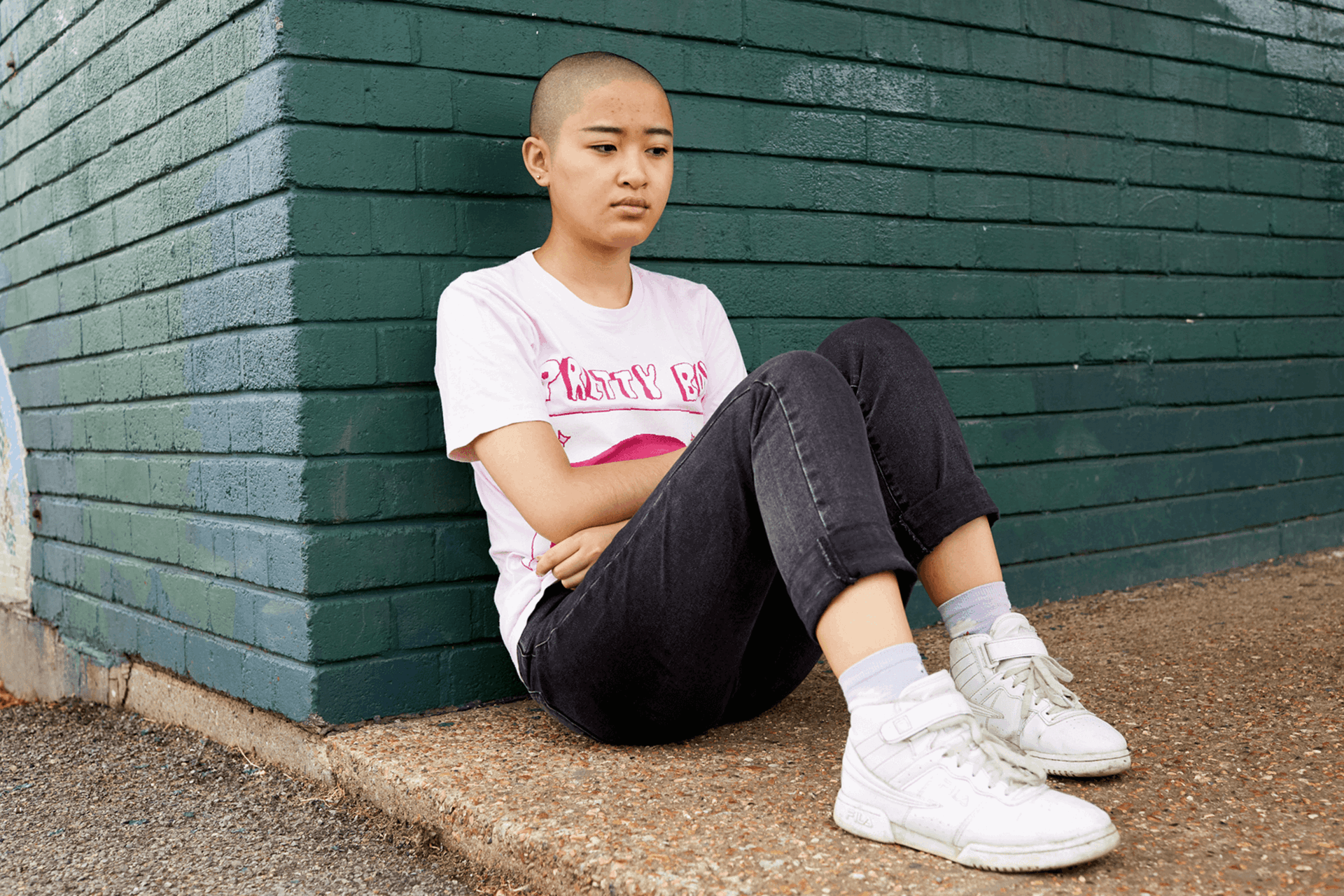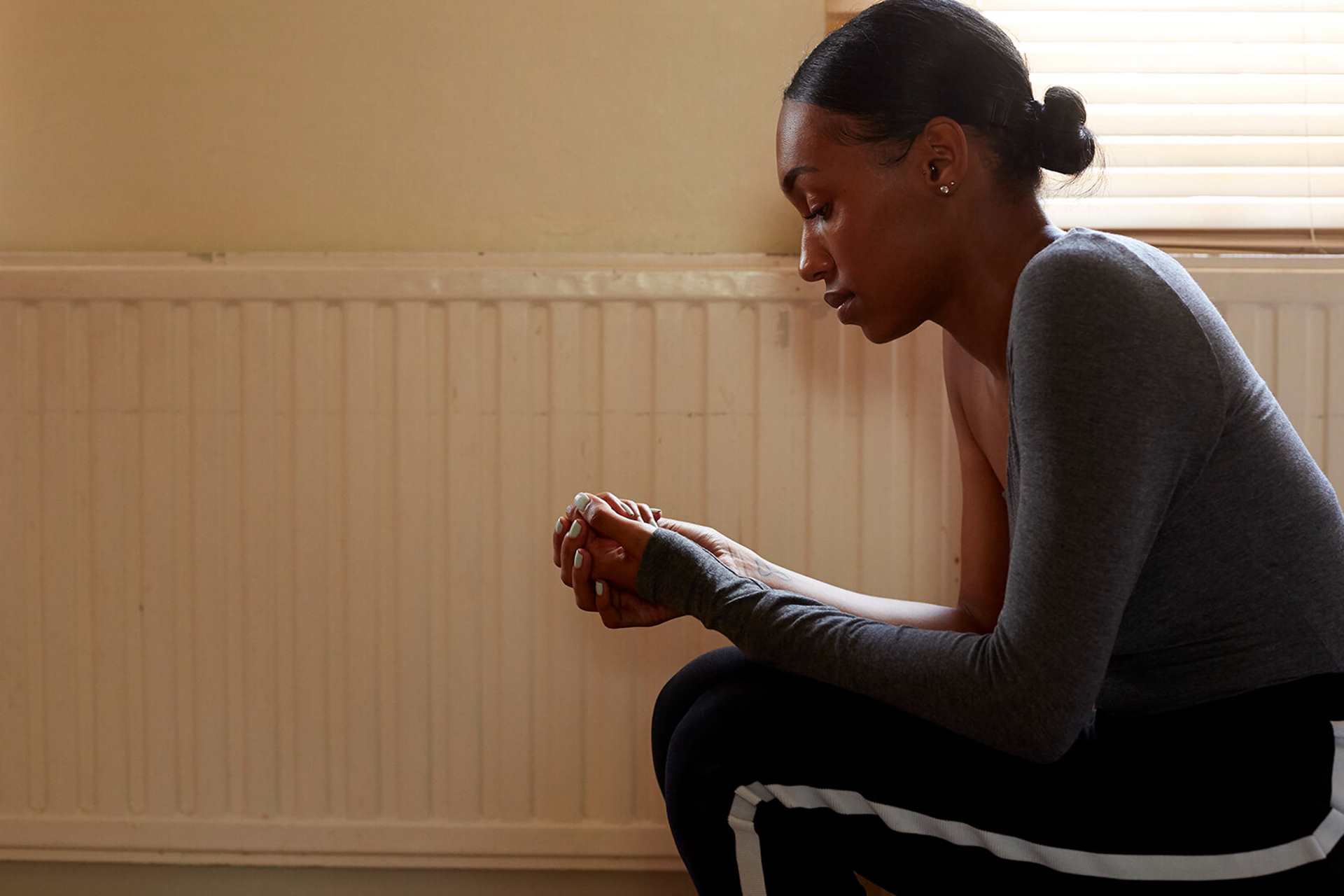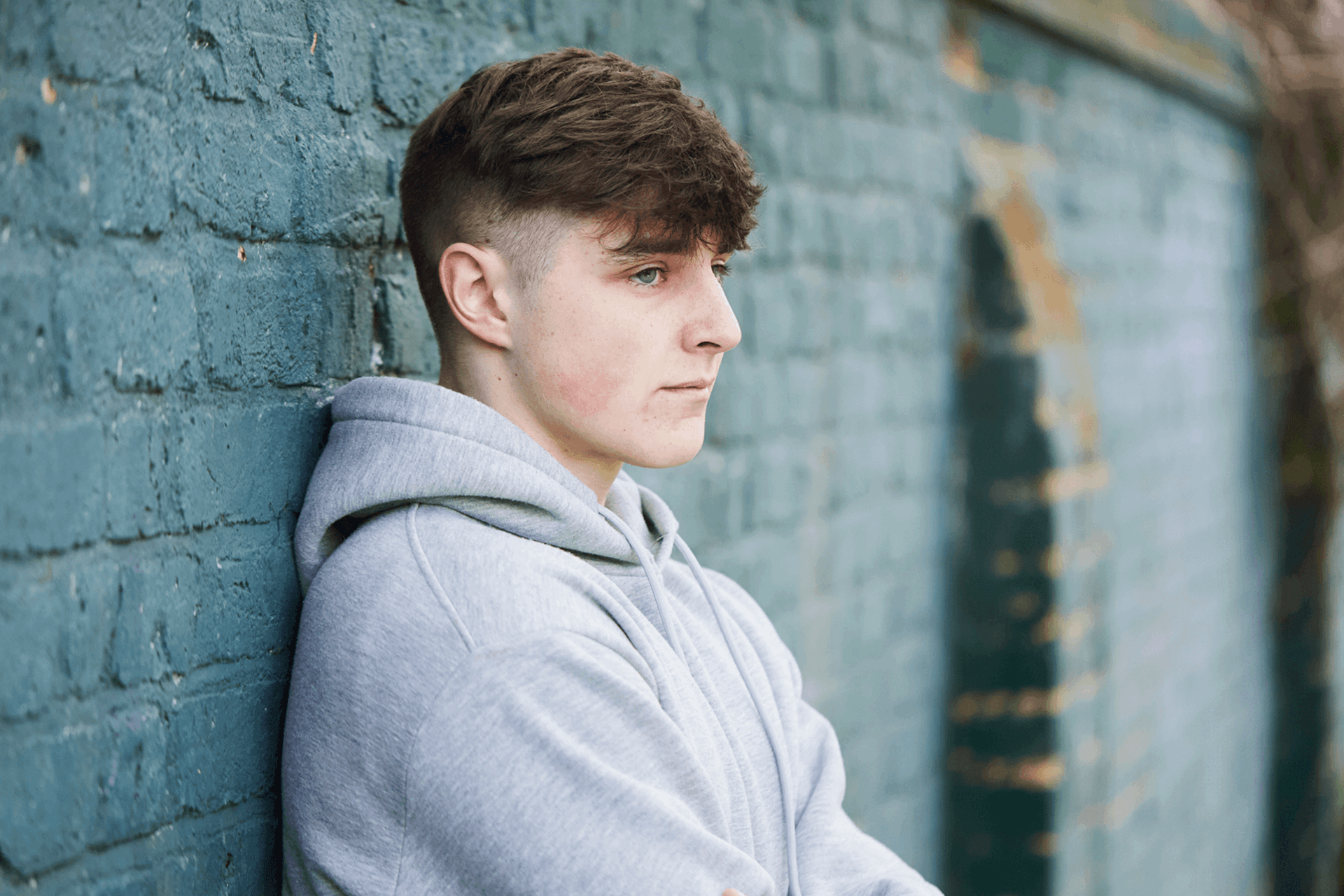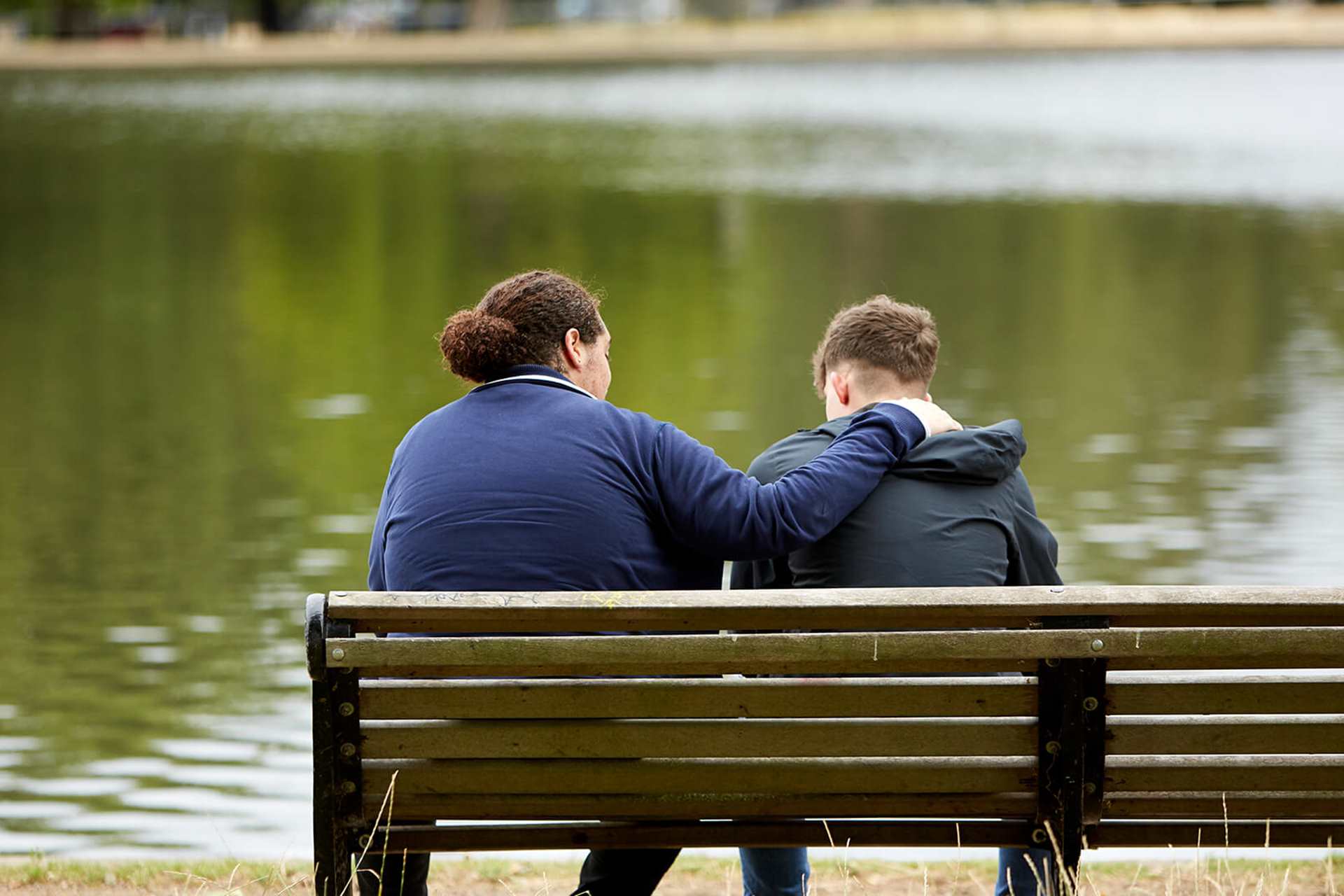Topics mentioned: grief and loss, feeling alone, anxiety
About: Nazifa reflects on the ways she grieved after her dad died when she was 23, how it felt at the time and where she's at now over a year on.
Before I experienced grief, I was convinced it would fit neatly into five stages. Once you’re done with those stages, you don’t get over it; you simply move on. It could take a few months, or maybe a year, but you would eventually just put the past behind you.
At the end of 2017, my dad died. And when they carted his body away at 2am, all we got in his place was a death certificate listing his causes of death as ‘renal cell carcinoma’ and ‘widespread bone metastasis.’ All the pain, the struggles, the morphine, the paralysis, feeding him, and staying up all night to take care of him in those final few days, had been reduced to two cold, clinical causes on a piece of paper.
A chapter ripped out of a book
At the time, I didn’t realise how badly my dad’s death would affect me. I knew it was coming and I most certainly struggled with the idea of it, but at the time he seemed so alive. Even though the doctors told us we would lose him, it didn’t feel like a reality. Three weeks before he died, he came home to be with us. Although he was paralysed from the waist down and confined to a hospital bed, he told my sister he felt that everyone had accepted he was going to die, yet he himself still didn’t feel as though his life was coming to an end. All he knew was how to live.
It didn’t feel like a reality.
We thought we had three months left with him – in reality, we only had three weeks. He would ask me when he would be able to walk again, so I asked his physiotherapist to help him gain his strength back. She tried to help, but he was too weak to complete the exercises she showed him. He wanted so badly to stay alive, to stay with us. He wasn’t ready to go. My dad’s will to live made it difficult for us to gain closure – it felt like his chapter was ripped out of our book.
The months that followed
Sometime in the months after my dad passed away (unfortunately, I can’t pinpoint the exact moment because the months have all become a blur) my aunt asked me why I was crying. “You were with him the whole time. Your dad told me he didn’t know what he would have done without you.” She was referring to his last few weeks with us, when I would sit by his side everyday, sometimes doing my readings for class, sometimes massaging the feet he couldn’t even feel, and other times feeding him and helping him drink. Most of all, I was keeping him company.
Grief brought on a lot of regret.
Whilst this initially seems like something to be proud of, I can only pray my behaviour in the last few weeks partially made up for the way I acted the past two years towards him. Grief brought on a lot of regret. I wasn’t the best daughter – I was so traumatised by my dad’s illness that I didn’t make the most of my time with him. It is something that I continue to criticise myself for.
When my dad died, I didn’t realise the steady chaos that would ensue. Convinced that I needed to make everyone proud, I set myself up for the near impossible task of completing my studies in the summer of 2018. I battled with myself daily, took guilt-ridden breaks and cried at my desk in the library. My thoughts were constantly haunted with my dad’s final moments, which my family and I had witnessed; they had pierced my mind and left a scar which will never heal. I would think of those moments throughout the day, when I showered, when I ate, on the rare occasions when I met friends. Every night, they were my last thoughts before I drifted off into a broken sleep.
Once, I turned up to a lesson on the history of India’s partition and cried the whole time because it reminded me of how passionate my dad was about his country’s history. I sobbed on my (very kind) teacher’s shoulder after our lesson that day. The lesson before that, another teacher spoke of a lady who had died from cancer. After these two incidents, I couldn’t face attending my classes for months. Yet I was so adamant to finish my final year. Not finishing seemed like the weak way out – I had already taken a gap year before, and needed to prove that I was strong enough to pass after such horrible circumstances. I felt too old to still be at university. My peers had all finished and gotten themselves graduate careers; in comparison, I felt like a complete failure.
Isolation and anxiety
I was way in over my head. Deadlines came and went, and I struggled to even look at a book without memories of my father flooding my thoughts. I vented to anyone who seemed to listen, yet alienated myself once I was done venting. My dad was not my only loss during this period of my life – I lost bonds I had created with others in the lead up to his death, I lost my self-esteem, a part of my identity had been severed, and I had backtracked on the progress I made not only at university, but with my mental health also. I didn’t want to talk to anybody about anything other than my loss. The consequences of my actions, however, meant that I became distanced from university life in general – after all, it felt as though no one truly understood what I was going through. Heck, no one in my classes even knew my dad had died. I didn’t want to be around anyone who couldn’t share my grief, so slowly I isolated myself.
I vented to anyone who seemed to listen, yet alienated myself once I was done venting.
With isolation came a heap of anxiety. I stopped being confident around people, and would feel like a waste of space – why would they want to talk to this sad and broken girl, when there were so many other, more fun people to hang out with? I also developed anxiety around my health. After the trauma of dealing with my dad’s sudden terminal cancer for two years, it was not unusual that I suddenly became convinced I had it too. Any pain, bump, or tingle meant that cancer was slowly spreading all over my body. Scans and blood tests showed nothing significant, yet I would lie paralysed in bed fearing a slow and painful death, and had multiple panic attacks throughout this time, convinced I was going to die. Now, over a year on, my self-esteem is slowly being rebuilt, but it hasn’t been easy – I still struggle with health anxiety occasionally.
Gathering new courage
Two years ago, I had no idea how grief would change my life. I was on track to do well in my studies, my dad was healthy enough to go to Bangladesh, and I was anticipating a big life change in 2018. Grief unsurprisingly put my life on pause, but now, I have slowly gathered the courage to press play. This year, after accepting a well-needed break for the sake of my mental health, I finally graduated university.
I have learned a lot about grief. For one, grief does not always begin after a loss.
Since December 4, 2017, I have learned a lot about grief. For one, grief does not always begin after a loss. For me, grief began when I first found out my dad was going to die, two years earlier. It was a slow and painful process, heavily anticipating a loss which always seemed to be around the corner. I can’t begin to imagine what it was like for my father.
Grief does not need your loved one to be your ‘hero’ for it to grip you like a vice. I was not daddy’s little princess – far from it, in fact. I love my dad and got on with him, but there were times when we fought with each other and other times where I would feel resentful or keep my distance. Yet many times I would laugh at his jokes and chat to him about politics. He supported me when I was struggling with my mental health, which is a blessing in the Bengali community where mental health is not well understood. Our relationship was not perfect, but I doubt any parent-child relationship is. It does not stop me from missing him every day of my life.
Forever changing grief
Most importantly, I’ve learned that grief does not fit neatly into five stages, and nor should we be pressured to ‘move on.’ You may not feel able to carry on for a long time. Or perhaps you may pick up right where you left off straight after the funeral – it all depends on who you are, but it does not define how strong or weak you are. I’ve come to realise that I will not just ‘move on’ and leave the past behind. For a long time, I stifled painful emotions to be able to cope with the rest of my life, and only now am I learning to accept and sit with those emotions without panicking or disrupting my entire day.
At such a time, taking care of yourself should be your number one priority.
Pressure to carry on does not always come from individuals; it can often come from the system and from within yourself. You’re expected to go back to work after having some time off, you’re expected to continue university or sacrifice graduating, and you’re expected to go back to normal to make your loved one proud. There is pressure all around us, and succumbing to the pressure can take a toll on mental wellbeing as a result. At such a time, taking care of yourself should be your number one priority. If that means having space away from everyone and everything for a little while, then so be it. I couldn’t have dealt with grief any other way, because that would indicate being somewhat prepared for the wave of emotion that characterises it, a preparation which is close to impossible to achieve.
My grief will always be a part of me. It won’t magically disappear and I won’t suddenly wave it goodbye. At times it’s been more difficult and isolating due to the fact that none of my friends have lost a parent to cancer, or lost a parent at all. They speak of their mum and dad, unable to imagine a world without them. The reality of losing a parent, the only people in your life who ever seemed infallible, is upsetting to face at only 23 years old – but I can’t imagine it would get any easier at 50.
It is forever changing, and I’ve learned new ways of coping with it.
Over a year on, grief is not manifest in the same way as it was a month on. It is forever changing, and I’ve learned new ways of coping with it. For a long time, I stifled painful memories and avoided any photos and videos taken of my dad in his final months and days. Although it’s still not easy, these days I try to sit with my memories and quietly reflect. The devastating memories of my father at his most ill, which at first were very intrusive, are finally beginning to sit side by side with happier ones. I will always keep the sad memories close to my heart – after all, there is no need to replace the trauma and struggle of his last two years on Earth, which formed a part of who he was. He struggled bravely and was an inspiration to us all. I do not wish to forget that, and nor do I think I ever will.
My loss has helped me to become who I am today. And whilst I struggled to find peace for a long time after my dad’s death, these days I’m doing a lot better. Now, rather than focusing on his pain and suffering, I try to remember my dad for who he really was: the fallible man who raised me to stay true to my values.
More information and advice
We have tips and advice to help you find the support you need. Take a look at our guides.
Where to get help
However you're feeling, there are people who can help you if you are struggling. Here are some services that can support you.
-
Winston's Wish
Offers practical support and guidance to bereaved children, their families and professionals.
Online chat service also available on their website.
- Opening times:
- 8am-8pm, Monday - Friday
-
Hope Again
Cruse Bereavement Care’s website for young people experiencing grief.
Has lots of personal stories from young people who have lost someone, as well as information and advice.
- Opening times:
- 9:30am - 5pm, Monday - Friday
-
Let's Talk About Loss
Let's Talk About Loss supports 18-35 year olds who have been bereaved of anyone, at any time.
They run monthly, peer-led meet ups all over the country and there is one online too, so wherever you are, you can access support. They talk about grief in a relaxed, fun and safe space with others of the same age who 'get it'.
